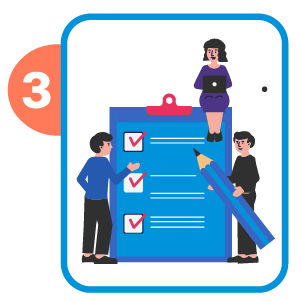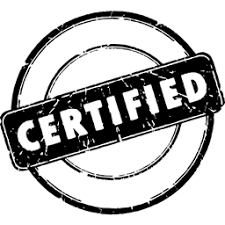 Most students find themselves engaged not only in the art of creating scholarly works but also in the critical task of reviewing the contributions of their peers. Document reviewing is a multifaceted skill that demands both a discerning eye and a profound understanding of the details of academic study. It is a skill that can make the difference between a mediocre piece of work and a brilliant contribution to the world of knowledge. We look into the field of effective reviewing, offering invaluable guidance to students striving to master this crucial aspect of their academic quest. Whether you're tasked with evaluating a classmate's essay, a research paper for a journal, or a dissertation proposal, the principles of document reviewing remain consistent. The process begins with a comprehensive understanding of the assignment or guidelines provided, which sets the stage for a thoughtful and constructive paper review. We help you approach each paper with an open mind, seeking to grasp the author's intentions and arguments. It involves a careful assessment of clarity, structure, and coherence to ensure that the paper communicates its ideas effectively. Key to a successful review is the scrutiny of the paper's thesis statement and the evaluation of its supporting evidence and citations. This discernment separates insightful reviews from superficial critiques. Our role as reviewers is not merely to identify weaknesses but also to acknowledge and commend strengths, fostering an environment of mutual growth within the academic community. Constructive feedback lies at the heart of paper assessment, where specific, actionable suggestions enable authors to refine their work. The importance of maintaining objectivity and professionalism throughout the process should be highly prioritized, as it ensures that feedback remains focused on the merits of the paper rather than on personal biases. As we explore these essential steps of reviewing a manuscript, it's important to recognize that mastering this skill takes time and practice. Seeking guidance from reliable professionals, such as our tutors or services, can provide valuable support and accelerate their progress toward becoming adept reviewers. Let us help you explore each of these crucial steps in greater detail, equipping you with the tools and knowledge needed to excel in the art of reviewing a document.
Most students find themselves engaged not only in the art of creating scholarly works but also in the critical task of reviewing the contributions of their peers. Document reviewing is a multifaceted skill that demands both a discerning eye and a profound understanding of the details of academic study. It is a skill that can make the difference between a mediocre piece of work and a brilliant contribution to the world of knowledge. We look into the field of effective reviewing, offering invaluable guidance to students striving to master this crucial aspect of their academic quest. Whether you're tasked with evaluating a classmate's essay, a research paper for a journal, or a dissertation proposal, the principles of document reviewing remain consistent. The process begins with a comprehensive understanding of the assignment or guidelines provided, which sets the stage for a thoughtful and constructive paper review. We help you approach each paper with an open mind, seeking to grasp the author's intentions and arguments. It involves a careful assessment of clarity, structure, and coherence to ensure that the paper communicates its ideas effectively. Key to a successful review is the scrutiny of the paper's thesis statement and the evaluation of its supporting evidence and citations. This discernment separates insightful reviews from superficial critiques. Our role as reviewers is not merely to identify weaknesses but also to acknowledge and commend strengths, fostering an environment of mutual growth within the academic community. Constructive feedback lies at the heart of paper assessment, where specific, actionable suggestions enable authors to refine their work. The importance of maintaining objectivity and professionalism throughout the process should be highly prioritized, as it ensures that feedback remains focused on the merits of the paper rather than on personal biases. As we explore these essential steps of reviewing a manuscript, it's important to recognize that mastering this skill takes time and practice. Seeking guidance from reliable professionals, such as our tutors or services, can provide valuable support and accelerate their progress toward becoming adept reviewers. Let us help you explore each of these crucial steps in greater detail, equipping you with the tools and knowledge needed to excel in the art of reviewing a document.
What are the key steps students can use for an effective review of a paper?
- Understand the Assignment: It's essential to thoroughly understand the assignment or guidelines provided by your instructor since different assignments may have specific criteria, such as evaluating the paper's argument, methodology, or adherence to a particular citation style. Knowing what's expected of you will guide your review process.
- Read the Paper Thoroughly: Begin your review by reading your work from start to finish without making any judgments or comments which will provide you with an overall understanding of the author's argument, methodology, and evidence. Take notes if necessary to remember your initial impressions.
- Assess Clarity and Structure: Evaluate the paper's transparency and organization. Is the writing clear and concise? Does the paper have a logical structure, with a well-defined introduction, body, and conclusion? With the best help with reviewing papers, our experts make it easy to note any areas where the organization could be improved.
- Evaluate the Thesis Statement: Every academic paper should have a clear and concise thesis statement that presents the main argument or research question. Assess whether the thesis statement is evident and whether the rest of the paper effectively supports it and note any weaknesses or inconsistencies in the argument.
- Examine Evidence and Citations: Are the sources credible and relevant? Is there a sufficient amount of evidence to support the argument? We ensure that you have properly cited your sources and adhered to the required citation style.
- Assess the Style and Tone: The technique and tone of writing can greatly impact the paper's effectiveness hence the need to pay attention to whether the tone is appropriate for the audience and if the style aligns with academic conventions. Our experts suggest improvements if necessary.
- Identify Strengths and Weaknesses: While reviewing, highlight areas where the author excels in their argument, and also note any shortcomings or areas that require improvement as constructive feedback is essential in the review process.
- Maintain Objectivity and Professionalism: Maintain a professional and objective tone throughout your review, avoid personal bias and emotions, and base your feedback on the paper's merits. Remember that the goal is to help the author improve their work, not to criticize or discourage them.
Mastering the art of reviewing an academic paper is a valuable skill that every student should aim to acquire during their academic study. The steps we've outlined provide a comprehensive framework for approaching paper reviews with clarity, objectivity, and professionalism. By understanding the assignment, thoroughly reading the paper, assessing its clarity and structure, evaluating the thesis statement, examining evidence and citations, identifying strengths and weaknesses, offering constructive feedback, and maintaining objectivity, you can contribute meaningfully to the scholarly discourse while refining your own critical thinking and writing skills. Remember that becoming proficient reviewers has taken us years of practice and dedication. It's a skill that will not only benefit your academic searches but also foster your ability to engage with complex ideas and arguments effectively. If you ever find yourself in need of additional support, don't hesitate to consult Petrian Editing Service experts to further enhance your reviewing capabilities.
Urgent Paper Reviewing Service – Our Experts Are Available 24/7
 The process of reviewing documents stands as a critical checkpoint on the journey toward disseminating knowledge and contributing to the vast Ideology of human understanding. Whether you are a seasoned researcher or a fledgling scholar, the significance of thoroughly reviewing your paper is paramount. It is within this phase of analysis that ideas are refined, arguments are strengthened, and the foundation of the study is fortified. Recognizing the importance of this study, our service takes center stage, with our team of dedicated experts available around the clock, ready to provide the meticulous assessment your work deserves. The question of why one should consider reviewing their paper with utmost diligence is diverse. The credibility and impact of your academic work hinge upon the clarity of your ideas and the precision of your arguments. A thorough review ensures that your message is conveyed effectively, enhancing the likelihood of your paper being embraced by the scholarly community. Secondly, the process of reviewing not only aids in the elimination of errors but also nurtures your growth as a scholar. Each review offers a valuable opportunity for self-reflection, allowing you to refine your writing style and improve your critical thinking skills. Reviewing a paper like a professional is no small accomplishment as it requires a systematic approach encompassing various aspects, such as grammar, syntax, coherence, logical flow, and adherence to style guides, among others. Employing a checklist can prove immensely beneficial, allowing you to methodically address each aspect of your paper's structure and content. Seeking input from our professional paper reviewers provides fresh perspectives and invaluable insights. One pressing question often looms over the process: how many pages of an academic paper can be reviewed in an hour? While there is no definitive answer, as it largely depends on the complexity and quality of the paper, a general guideline suggests that a comprehensive review can take anywhere from 2 to 5 pages per hour. It's crucial to prioritize quality over quantity, ensuring that every aspect of the paper is thoroughly examined. We are poised to be your steadfast ally, offering a lifeline to scholars seeking to elevate their work to the highest standards. With our experts available 24/7, we stand ready to assist you in your quest for academic excellence, guiding you through the detailed art of reviewing your work with the precision and dedication it deserves.
The process of reviewing documents stands as a critical checkpoint on the journey toward disseminating knowledge and contributing to the vast Ideology of human understanding. Whether you are a seasoned researcher or a fledgling scholar, the significance of thoroughly reviewing your paper is paramount. It is within this phase of analysis that ideas are refined, arguments are strengthened, and the foundation of the study is fortified. Recognizing the importance of this study, our service takes center stage, with our team of dedicated experts available around the clock, ready to provide the meticulous assessment your work deserves. The question of why one should consider reviewing their paper with utmost diligence is diverse. The credibility and impact of your academic work hinge upon the clarity of your ideas and the precision of your arguments. A thorough review ensures that your message is conveyed effectively, enhancing the likelihood of your paper being embraced by the scholarly community. Secondly, the process of reviewing not only aids in the elimination of errors but also nurtures your growth as a scholar. Each review offers a valuable opportunity for self-reflection, allowing you to refine your writing style and improve your critical thinking skills. Reviewing a paper like a professional is no small accomplishment as it requires a systematic approach encompassing various aspects, such as grammar, syntax, coherence, logical flow, and adherence to style guides, among others. Employing a checklist can prove immensely beneficial, allowing you to methodically address each aspect of your paper's structure and content. Seeking input from our professional paper reviewers provides fresh perspectives and invaluable insights. One pressing question often looms over the process: how many pages of an academic paper can be reviewed in an hour? While there is no definitive answer, as it largely depends on the complexity and quality of the paper, a general guideline suggests that a comprehensive review can take anywhere from 2 to 5 pages per hour. It's crucial to prioritize quality over quantity, ensuring that every aspect of the paper is thoroughly examined. We are poised to be your steadfast ally, offering a lifeline to scholars seeking to elevate their work to the highest standards. With our experts available 24/7, we stand ready to assist you in your quest for academic excellence, guiding you through the detailed art of reviewing your work with the precision and dedication it deserves.
Why you should consider reviewing your paper thoroughly;
- Catching Errors and Typos in the Paper: One of the most important reasons to double-check your work is to catch mistakes and typographical errors that may have been overlooked during the initial writing process. Even the most diligent writers can miss mistakes in their work, which can lead to inaccuracies and misinterpretations of the research, and our reviewers can help catch these errors and ensure that the final product is free of mistakes.
- Enhancing Readability and Flow: We can help enhance the legibility and flow of the writing, making it easier for readers to follow and understand the arguments and findings presented in the paper to ensure that the paper is engaging and holds the reader's attention.
- Identifying Areas for Improvement: Our experts provide feedback on the strengths and weaknesses of the paper or project, and suggest ways to improve the overall quality of the writing which can be invaluable in helping authors refine their work and ensure that it is the best it can be before submission.
- Adhering to Paper Writing Style Guidelines: These guidelines may include formatting requirements, citation styles, and other editorial policies, and adhering to them is essential for ensuring that the paper or project is accepted for publication. As reviewers, we help ensure that the paper or project adheres to these guidelines, which can save time and effort in the long run.
- Boosting Professionalism and Credibility: Seeking help from our urgent paper reviewing service can help boost the professionalism and credibility of the work since a well-written and error-free paper or project is more likely to be taken seriously by readers and reviewers. This can enhance the author's reputation as a knowledgeable and reliable source of information which is important for early-career researchers who are looking to establish themselves in their field.
- Improving Language Proficiency: For non-native English speakers, writing research papers or projects in English can be particularly challenging, and professional help to review the writing not only helps to catch errors and improve clarity but can also serve as a learning opportunity to improve language proficiency and become a better writer overall.
Ways or methods you can employ to review a paper like a professional;
- Make a list of errors that you commonly make and keep an eye out for them. It is possible that we all have our own set of writing habits and quirks, and it's important to be aware of them when reviewing. For example, if you tend to mix up "its" and "it's," make a note of it and keep an eye out for those errors as you read through your paper.
- Read the text backward. This may seem like an odd approach, but it can be an effective way to catch errors that you might otherwise miss as by reading the text backward, you'll be forced to focus on individual words and phrases, rather than getting caught up in the flow of the writing. It can help you catch errors in spelling, punctuation, and grammar that you might have missed otherwise.
- review for only one type of error at a time. Rather than trying to catch all errors at once, focus on a single type of error at a given time. For example, start by reviewing for spelling errors, then move on to grammar, punctuation, and so on and you'll be more efficient and effective in catching errors.
- Double-check everything. Even if you're confident that you've caught all errors, it's always a good idea to check again. Go back through your paper one last time and check for any errors that you might have missed to have peace of mind and be sure that your writing is error-free and polished.
How many pages of an academic paper can you review in an hour?
The number of pages of a paper that you can review in an hour will depend on various factors, including the complexity of the writing, the level of editing required, and your own speed and proficiency. The average reviewing speed for our professional research reviewing experts is between 2,000 and 3,000 words per hour. This equates to around 8 to 12 pages per hour for a double-spaced document with a 12-point font. It's important to note that the speed of reviewing can vary widely depending on the specific document being reviewed. For example, a paper that is heavy on technical jargon or specialized terminology may require more time to review than a paper that is written in simpler language. A document that has already been edited several times may require less time to review than a paper that has not been edited at all. Your own speed and proficiency in reviewing will also play a significant role in how many pages of a research paper you can review in an hour. If you are a fast and efficient reviewer with a keen eye for detail, you may be able to review more pages per hour than someone who is slower or less experienced. It's also important to remember that reviewing is not a task that should be rushed. While it's important to be efficient, it's equally important to take the time to carefully review each page of the document and ensure that it is error-free and polished. Rushing through the reviewing process can lead to mistakes and oversights, which can greatly detract from the overall quality of the document. The number of pages of a research paper that you can review in an hour will vary depending on several factors, including the complexity of the writing, the level of editing required, and your own speed and proficiency. The most important factor is to take the time to carefully review each page and ensure that the document is error-free and polished, regardless of how many pages you can review in an hour.
The availability of our urgent service with round-the-clock access to expert reviewers is a valuable resource for scholars and researchers seeking to enhance the quality of their academic papers. The imperative of thorough review is fundamental to ensuring clarity, coherence, and the elimination of errors in one's work. To review a paper like a professional, an aspiring author should adopt systematic methods. These include a comprehensive reading to understand the paper's context, structure, and argumentation. It is also crucial to scrutinize grammar, syntax, and citation adherence while checking for logical flow and coherence. Seeking feedback from our experts is another essential step in the review process. Regarding the pace of review, the number of pages an individual can review in an hour varies based on the complexity of the content, but on average, a thorough review may encompass 3 to 5 pages. The exact rate can fluctuate, but the key is to prioritize quality over quantity. Embracing the assistance of our experts and adopting professional reviewing techniques can significantly elevate the standard of academic papers, fostering excellence in research and scholarship.







